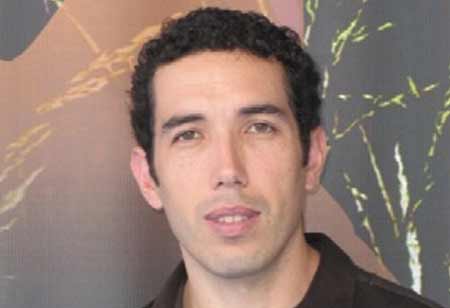

Thank you for Subscribing to Cannabis Business Insights Weekly Brief

Could you explain your roles and responsibilities, as the senior manager in precision agriculture, at Florida Crystals?
I oversee the design, development, implementation, and automation of new systems at Florida Crystals. I am also in charge of data and information collection, working along the complete spectrum of data acquisitions and analytics. To collect this information, we use state-of-the-art precision agricultural tools equipped with telematics technology, like remote sensing analytics tool, which is installed in our tractors and irrigation systems. For me, a day at Florida Crystals also includes conducting studies on advanced tools and systems.
What, in your opinion, is driving the future of the irrigation sector?
We have been witnessing significant evolution in the irrigation space with advancements in automation for irrigation scheduling, data analytics for real-time monitoring, and artificial intelligence and machine learning for optimizing water usage. These technologies are major catalysts in maximizing the production while significantly lowering costs. It also minimizes the adverse effects of climate impact and increases the sustainability of agriculture. A combination of these technologies holds the key to the future of irrigation.
Could you elaborate the major pain points in today’s irrigation space?
Farmers face significant challenges when implementing sensor and data communication systems for collecting relevant information such as water quality and soil moisture. These systems require significant investments, and the infrastructure necessary to automate operations must be carefully planned and implemented.
Another challenge is the lack of strong data analytics capabilities and machine learning models, which are essential for creating effective irrigation schedules. Remote sensors and drone and satellite images are also crucial for monitoring crop health and must be integrated into the overall system. Implementing these technologies can improve efficiency and ultimately lead to better crop yields and sustainability for the agricultural operation.
Automating irrigation and drainage events can have a positive impact on the operation's resource utilization and contribute to its long-term success
What are some of the processes that you leveraged to create successful projects at Florida Crystals?
Automating irrigation and drainage events can have a positive impact on the operation's resource utilization and contribute to its long-term success. By optimizing the use of resources, including water and energy, and reducing over-irrigation and over-draining, the operation can improve its efficiency and sustainability. Additionally, minimizing erosion and runoff during drainage can help preserve soil health and promote regenerative agriculture practices.
Our implementation of automation technology resulted in significant time and cost savings by streamlining irrigation and drainage events. It reduced inputs and maximized productivity.
We leveraged cloud computing to enhance our workflows by making information readily available, including automated weather data collection that eliminated the need for manual data gathering. These data parameters like rainfall, soil temperature, and weather temperature, were analyzed to improve our processes.
The tools we implemented also increased worker satisfaction by eliminating the need to collect data or maintain outdated hardware that doesn't provide telematics information. Additionally, our marketing strategy has leveraged these advances to enhance our brand and digital presence in the markets we serve.
Could you explain the role played by public private partnerships in advancing irrigation practices?
The collaboration between public and private sectors is crucial, particularly when it comes to ensuring the quality and appropriate use of water resources. We all share a responsibility to safeguard this precious resource and use it efficiently. Therefore, partnerships must promote the adoption of best management practices that adhere to well-defined parameters and guidelines. Equally critical is educating the public since agriculture is often blamed for water pollution and damage. It is essential to clarify the actual impact of agricultural practices on water and work alongside public and private agencies to measure and monitor their effects.
Would you like to share some words of wisdom for the senior leaders and the CXOs working in the irrigation sector?
I would like to say that collaboration among diverse professionals is crucial for developing the most effective strategy to automate data collection for agriculture. This includes gathering data on weather patterns, crop and soil needs, and water sources. Both public and private sectors requires finding leaders who possess a deep understanding of agronomy, technology, precision agriculture, and data analytics. These leaders should be able to comprehend the full range of activities and technologies required to improve production systems. As the field of agriculture becomes increasingly integrated, it is essential to have leaders who can oversee all aspects of the process and demand a better production system.
I agree We use cookies on this website to enhance your user experience. By clicking any link on this page you are giving your consent for us to set cookies. More info